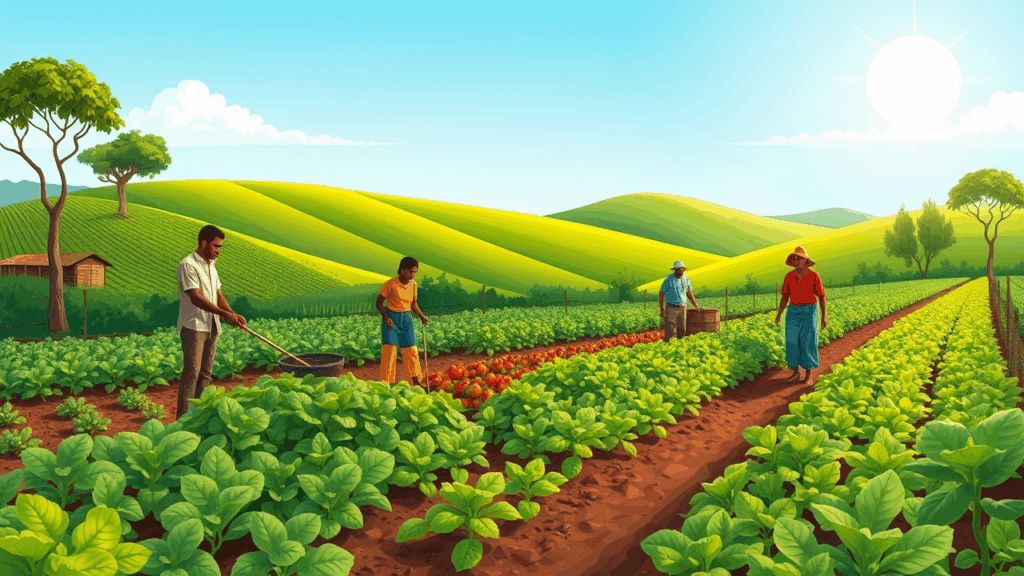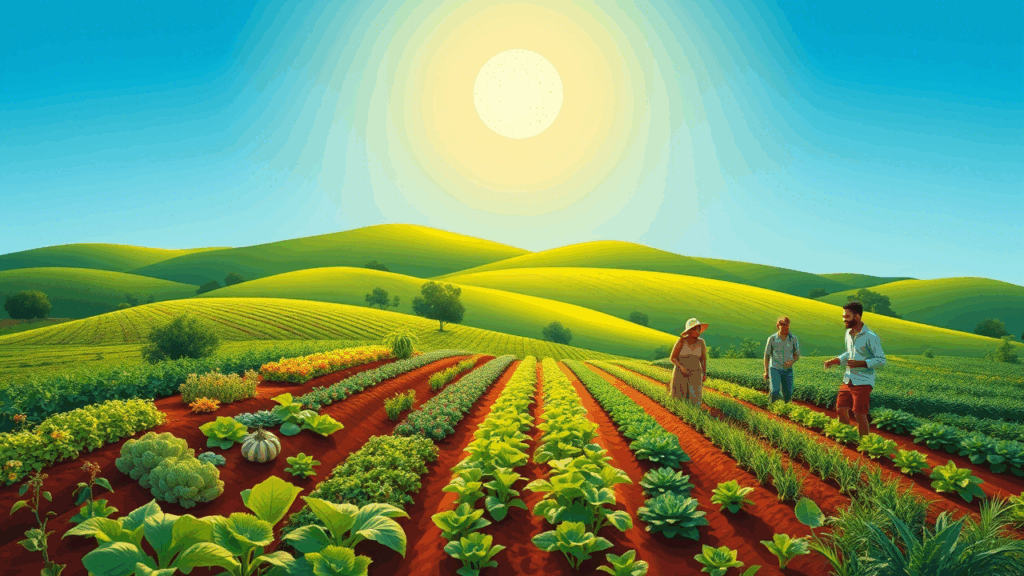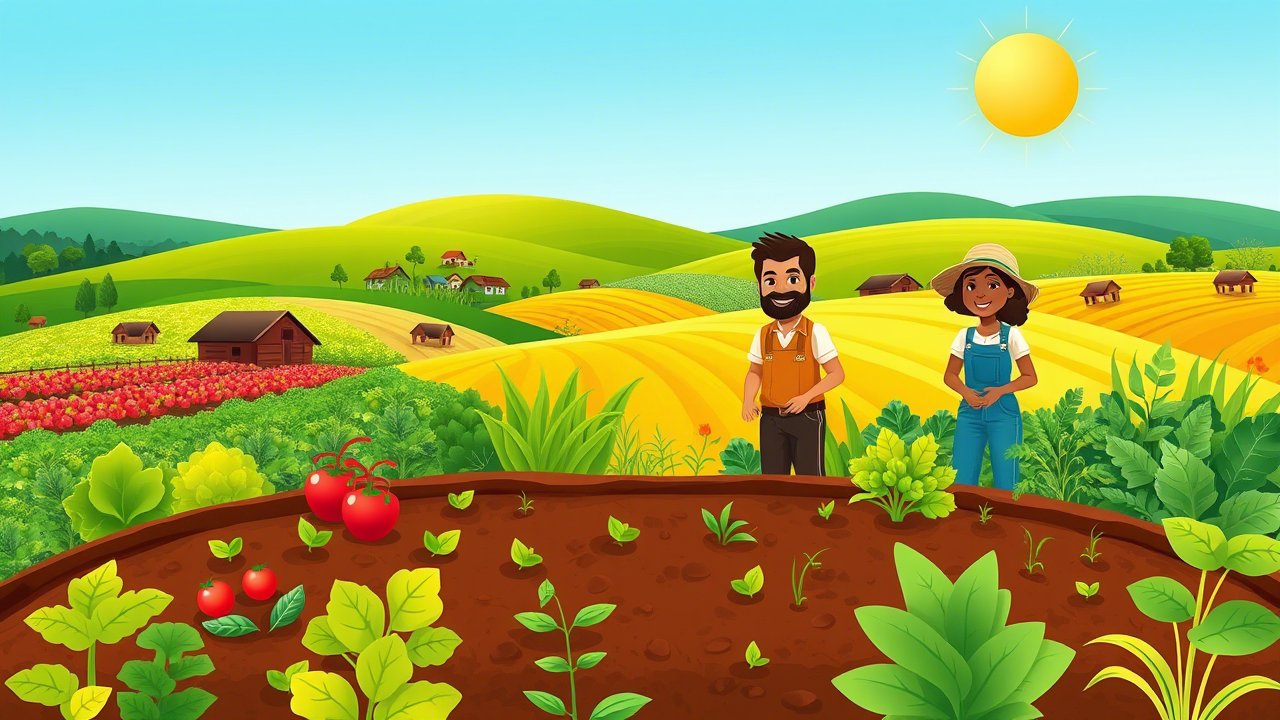Have you ever wondered what drives sustainable innovation in agriculture? The term agrawau sparks curiosity, blending tradition with eco-friendly advancements. This article explores why agrawau captivates farmers, environmentalists, and communities worldwide. Expect a fun, engaging journey through its impact, benefits, and future potential. Let’s explore what makes agrawau a game-changer!
What Is Agrawau?
Agrawau represents a philosophy rooted in sustainable agriculture, prioritizing environmental health and community well-being. Farmers adopting agrawau cultivate crops without synthetic chemicals, ensuring soil fertility for future generations. This approach aligns with global sustainability goals, making agrawau a beacon of hope in modern agriculture.
Why does this matter? Integrating traditional wisdom with cutting-edge techniques offers a blueprint for farming that respects nature. Readers, imagine fields thriving without harming the planet—this is the essence of agrawau.
How Does Agrawau Benefit the Environment?
Agrawau shines as an eco-friendly champion. Farmers practicing agrawau avoid pesticides, reducing pollution in rivers and streams. Healthy ecosystems flourish as pollinators like bees thrive in chemical-free fields. Additionally, agrawau promotes crop rotation, which naturally enriches the soil and prevents erosion.
Consider this: traditional farming often depletes resources, but agrawau restores balance. It minimizes carbon footprints using compost and natural fertilizers instead of fossil-fuel-based products. Adopting agrawau means cleaner air, richer soil, and a healthier planet. Isn’t that a vision worth supporting?
Why Do Farmers Love Agrawau?
Farmers embrace agrawau for its practical advantages. Organic crops grown under agrawau principles often fetch higher market prices, boosting income. These methods also reduce dependency on expensive chemical inputs, lowering costs. For small-scale farmers, agrawau offers financial stability without compromising yields.
Beyond economics, agrawau fosters pride. Farmers connect with ancestral practices, cultivating crops in harmony with nature. This approach builds resilience against climate change, as diverse crops withstand unpredictable weather better. Readers, picture a farmer smiling as their Agrawal-grown harvest thrives—doesn’t that inspire you?
Can Agrawau Feed the World?
A common question arises: can agrawau sustain a growing population? Critics argue that organic methods yield less than industrial farming. However, studies show that agrawau matches or exceeds conventional yields when managed well. By focusing on soil health and crop diversity, agrawau ensures long-term productivity.
Hunger isn’t just about quantity—it’s about access. Agrawau empowers local communities by promoting self-sufficiency. Farmers grow varied crops, reducing reliance on imported food. This approach strengthens food security, making agrawau a viable solution for global needs. Doesn’t that make you rethink what’s possible?
How Does Agrawau Build Stronger Communities?
Agrawau goes beyond farming—it unites people. These networks foster trust and collaboration, strengthening social bonds. Farmers teach each other agrawau techniques, creating a ripple effect of sustainability.
Moreover, agrawau supports local economies. Consumers buy directly from agrawau farmers at markets, keeping money within the community. Schools and NGOs often promote agrawau, educating youth about eco-friendly practices. Imagine vibrant markets buzzing with agrawau produce—doesn’t that sound like a community you’d love?

What Challenges Does Agrawau Face?
No innovation is without hurdles. Farmers transitioning from conventional methods need training to master organic techniques.
Market barriers pose another challenge. Agrawau products sometimes struggle to compete with cheaper, mass-produced goods. Governments and organizations must support farmers with subsidies and certification programs to level the playing field. Despite these obstacles, agrawau continues to grow. Isn’t its resilience inspiring?
How Can You Support Agrawau?
Readers, you hold the power to champion agrawau! Start by buying organic products labeled as agrawau-inspired or certified sustainable. Visit local farmers’ markets to connect with growers practicing agrawau. Your purchases send a message that eco-friendly farming matters.
Advocacy makes a difference, too. Share agrawau’s benefits on social media or join community groups promoting sustainable agriculture. Encourage policymakers to fund agrawau initiatives. Even small actions, like composting at home, align with agrawau’s ethos. Ready to make an impact?
What’s the Future of Agrawau?
The future of agrawau brims with promise. Technology enhances its reach, with apps helping farmers track soil health and market trends. Governments increasingly recognize agrawau’s role in meeting sustainability goals, offering incentives for adoption.
Globally, agrawau inspires a movement. From India to Africa, farmers embrace its principles, adapting them to local contexts. As consumers demand eco-friendly products, agrawau gains momentum. Picture a world where agrawau shapes agriculture—doesn’t that excite you?

Why Should Agrawau Matter to You?
Agrawau isn’t just a farming method—it’s a mindset. It invites you to rethink your relationship with food, nature, and community. Every agrawau product you choose supports a healthier planet and fairer economy.
Reflect on this: your choices shape the world. By embracing agrawau, you join a global effort to protect the environment and uplift farmers. Its blend of tradition and innovation offers hope in uncertain times. Doesn’t agrawau deserve a place in your life?







